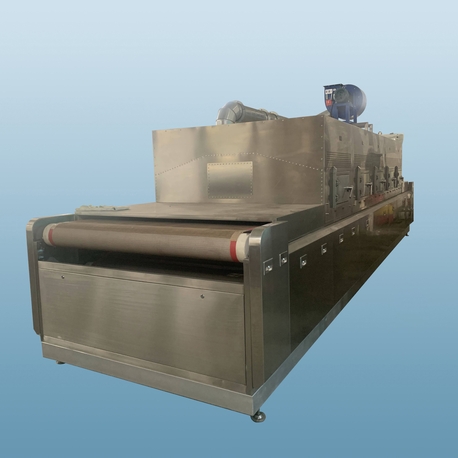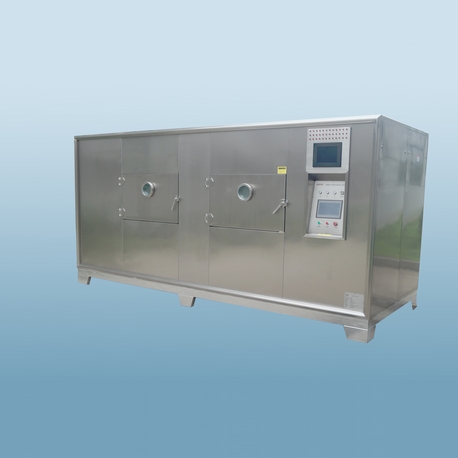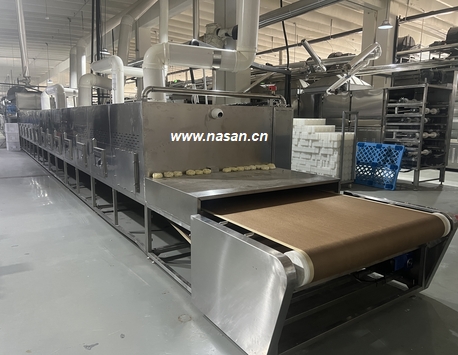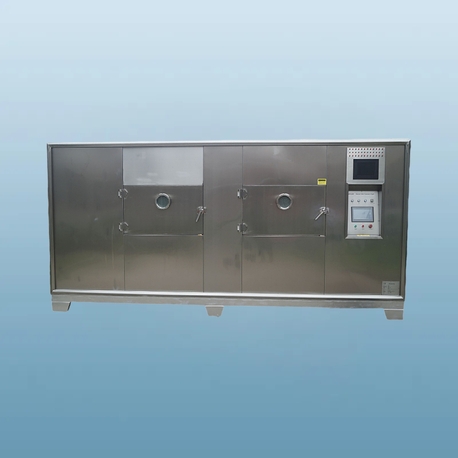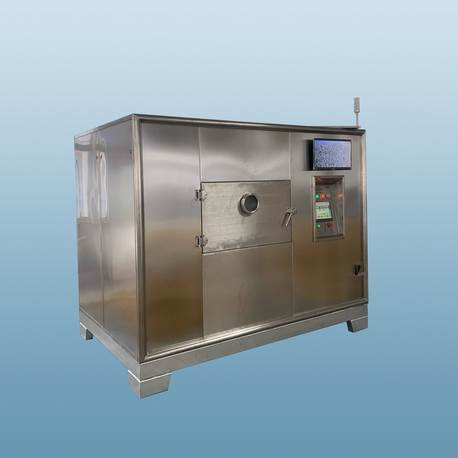Industrial microwave technology has revolutionized various sectors by offering efficient, rapid, and uniform heating solutions. Unlike domestic microwaves, industrial microwave systems are designed for large-scale applications, including drying, curing, and processing materials in industries such as food, pharmaceuticals, textiles, and ceramics. This article provides a comprehensive overview of industrial microwave technology, focusing on key aspects like industrial microwave dryers, industrial microwave ovens, industrial microwave dryer price considerations, and industrial microwave equipment manufacturers. We will also explore common challenges faced by users and practical solutions. By the end, you'll have a clear understanding of how these systems work, their benefits, and what to consider when investing in them.
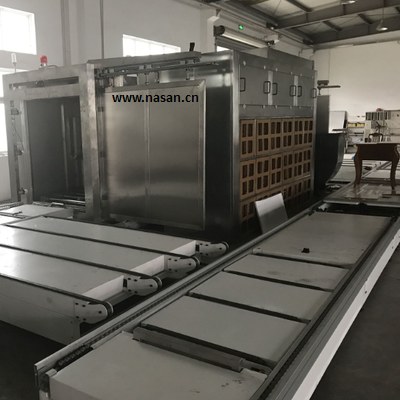
What is Industrial Microwave Technology?
Industrial microwave technology utilizes electromagnetic waves, typically at frequencies of 915 MHz or 2450 MHz, to generate heat within materials through dielectric heating. This process involves the interaction of microwaves with polar molecules, such as water, causing them to vibrate and produce thermal energy. The result is fast, volumetric heating that penetrates deeply into materials, reducing processing times and energy consumption compared to conventional methods like convection or conduction heating.
The applications of industrial microwave systems are vast. They are commonly used for drying, baking, thawing, pasteurizing, and sterilizing products. For instance, in the food industry, industrial microwave ovens can quickly bake bread or dry fruits, while industrial microwave dryers are ideal for removing moisture from grains or ceramics. The efficiency of these systems stems from their ability to heat materials uniformly from the inside out, minimizing quality degradation. Moreover, industrial microwave equipment is often customizable, allowing manufacturers to tailor systems to specific production needs.
When discussing industrial microwave technology, it's essential to distinguish between different types of equipment. An industrial microwave dryer is specifically designed for dehydration processes, whereas an industrial microwave oven is versatile, used for cooking, heating, or curing. Understanding these distinctions helps in selecting the right system for your operation. Additionally, factors like industrial microwave dryer price and the reputation of industrial microwave equipment manufacturers play a crucial role in decision-making. As we delve deeper, we'll explore each component in detail.
Industrial Microwave Dryer: Principles and Applications
An industrial microwave dryer is a specialized system that uses microwave energy to remove moisture from materials efficiently. Unlike traditional dryers that rely on surface heating, industrial microwave dryers provide internal heating, which speeds up the drying process and reduces energy usage. This is particularly beneficial for heat-sensitive products, as it prevents overheating and preserves quality.
The working principle of an industrial microwave dryer involves directing microwaves into a chamber containing the material to be dried. The microwaves agitate water molecules, generating heat that evaporates moisture. Since the heating is volumetric, it occurs throughout the material simultaneously, leading to uniform drying. This method is ideal for applications such as drying agricultural products (e.g., grains and herbs), textiles, ceramics, and pharmaceuticals. For example, in the food industry, an industrial microwave dryer can reduce drying times by up to 50% compared to hot-air dryers, thereby increasing throughput and reducing costs.
Key advantages of industrial microwave dryers include improved product quality, as controlled drying minimizes case hardening (a common issue where the surface dries faster than the interior). Additionally, these systems are compact and can be integrated into existing production lines. However, the industrial microwave dryer price can vary based on capacity and features, which we'll discuss later. When considering an industrial microwave dryer, it's important to evaluate factors like material properties, moisture content, and production volume to ensure optimal performance. Leading industrial microwave equipment manufacturers often provide consultation to help customize systems for specific needs.
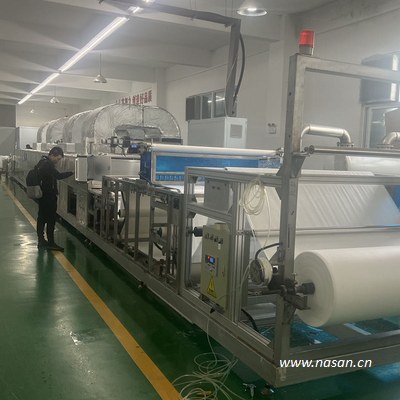
Industrial Microwave Oven: Key Features and Uses
An industrial microwave oven is designed for high-volume heating, cooking, or processing tasks in commercial and industrial settings. While similar in principle to domestic microwaves, industrial versions are built for durability, continuous operation, and larger capacities. They are used in various industries for applications such as baking, thawing, pasteurizing, and precooking foods, as well as for non-food uses like curing plastics or drying coatings.
The core features of an industrial microwave oven include robust construction, often with stainless steel interiors, and advanced control systems for precise temperature and power management. Many models offer programmable settings, allowing operators to automate processes for consistency. For instance, in the bakery industry, an industrial microwave oven can rapidly bake bread or cakes, reducing proofing times and improving shelf life. In the pharmaceutical sector, these ovens are used for sterilizing equipment or drying granules.
One of the main benefits of an industrial microwave oven is its energy efficiency. By heating materials directly, it reduces heat loss and shortens processing times, leading to lower operational costs. However, proper installation and maintenance are crucial to avoid issues like uneven heating. When selecting an industrial microwave oven, consider factors such as power rating, chamber size, and compatibility with your product line. Industrial microwave equipment manufacturers often provide testing services to ensure the oven meets specific requirements. As part of the broader industrial microwave ecosystem, these ovens complement dryers in many production environments, offering versatility for diverse applications.
Understanding Industrial Microwave Dryer Price
The industrial microwave dryer price is a critical factor for businesses considering investment in this technology. Prices can range from $10,000 to over $100,000, depending on various factors. Understanding these variables helps in budgeting and making informed decisions.
First, the capacity and size of the industrial microwave dryer significantly influence the cost. Larger units designed for high-throughput operations, such as drying tons of material per hour, will be more expensive than smaller, batch-type dryers. For example, a compact industrial microwave dryer for laboratory use might cost around $10,000-$20,000, while a full-scale system for industrial production could exceed $50,000. Additionally, customizations, such as specialized controls or materials handling systems, can add to the price.
Second, the technology and features play a role. Advanced industrial microwave dryers with automation, energy recovery systems, or integrated sensors for moisture monitoring tend to be priced higher. These features, however, can improve efficiency and reduce long-term costs. It's also important to consider the industrial microwave dryer price in relation to operational savings; for instance, reduced energy consumption and faster drying times can lead to a quick return on investment.
Third, the source of purchase affects the industrial microwave dryer price. Buying directly from reputable industrial microwave equipment manufacturers may offer better warranty and support but could be costlier than used equipment. However, used systems might come with risks like higher maintenance costs. When evaluating price, request quotes from multiple industrial microwave equipment manufacturers and compare specifications. Don't forget to factor in installation, training, and ongoing maintenance expenses. Overall, while the upfront industrial microwave dryer price might seem high, the long-term benefits often justify the investment.
Leading Industrial Microwave Equipment Manufacturers
Choosing the right industrial microwave equipment manufacturers is essential for ensuring quality, reliability, and after-sales support. The market includes several key players known for innovation and expertise in industrial microwave technology. These manufacturers offer a range of products, from industrial microwave dryers to ovens, and provide customized solutions.
One prominent group of industrial microwave equipment manufacturers is based in Europe and North America, with companies like Püschner GmbH (Germany) and Industrial Microwave Systems (USA) leading the way. Püschner specializes in high-power industrial microwave systems for applications such as food processing and chemical industries. They are known for their robust designs and compliance with international safety standards. Another notable manufacturer is Linn High Therm GmbH (Germany), which offers industrial microwave ovens for high-temperature processes like sintering ceramics.
In Asia, companies such as Shanghai Wangwei Industry Co., Ltd. (China) are major industrial microwave equipment manufacturers, offering cost-effective solutions without compromising on quality. They often provide comprehensive services, including installation and training. When selecting industrial microwave equipment manufacturers, consider their experience, customer reviews, and after-sales service. It's advisable to visit facilities or request case studies to assess their capabilities.
Additionally, many industrial microwave equipment manufacturers focus on specific industries. For example, some excel in food-grade systems, while others cater to pharmaceutical or mineral processing needs. Before making a decision, evaluate your requirements and engage with manufacturers who offer testing or pilot programs. This ensures that the equipment, whether an industrial microwave dryer or oven, meets your operational goals. By partnering with reputable industrial microwave equipment manufacturers, you can mitigate risks and maximize the benefits of this technology.
Common Problems in Industrial Microwave Systems and How to Solve Them
Despite their advantages, industrial microwave systems can encounter issues that affect performance. Understanding these common problems and their solutions is crucial for maintaining efficiency and longevity. Below, we discuss typical challenges related to industrial microwave dryers, ovens, and general equipment.
Uneven Heating or Drying: This is a frequent issue in industrial microwave systems, where parts of the material are overheated while others remain underheated. It often results from improper loading or inconsistent microwave distribution. To solve this, ensure even material placement and consider systems with stirrers or turntables for uniform exposure. Regular calibration by industrial microwave equipment manufacturers can also help.
Arcing or Sparking: Arcing occurs when microwaves concentrate on metal objects or sharp edges, causing sparks that can damage the equipment. This is common in industrial microwave ovens if metallic contaminants are present. Prevention involves using non-metallic containers and ensuring the chamber is clean. Industrial microwave equipment manufacturers often design systems with safety features to minimize arcing risks.
Moisture Control Issues: In industrial microwave dryers, inaccurate moisture control can lead to over-drying or insufficient drying. This may stem from faulty sensors or incorrect settings. Implementing automated moisture sensors and regular maintenance can address this. Consult with industrial microwave equipment manufacturers for advanced control options.
Energy Inefficiency: While industrial microwave systems are generally efficient, poor insulation or outdated components can increase energy consumption. Upgrading to modern systems with energy recovery features can reduce costs. Also, monitor the industrial microwave dryer price against energy savings to justify upgrades.
Maintenance Neglect: Like any industrial equipment, lack of maintenance can cause breakdowns. Common issues include magnetron failure or waveguide degradation. Follow a maintenance schedule provided by industrial microwave equipment manufacturers, including cleaning and part replacements. Training staff on basic troubleshooting is also beneficial.
Safety Concerns: Industrial microwave systems emit radiation, so safety is paramount. Problems like door leaks or inadequate shielding can pose risks. Ensure compliance with safety standards and conduct regular inspections. Reputable industrial microwave equipment manufacturers include safety protocols in their designs.
By addressing these problems proactively, businesses can enhance the reliability of their industrial microwave systems. If issues persist, contacting the industrial microwave equipment manufacturers for support is recommended.
Industrial microwave technology offers transformative benefits for various industries, from improved efficiency to product quality. This article has explored key aspects, including industrial microwave dryers for precise dehydration, industrial microwave ovens for versatile heating, factors affecting industrial microwave dryer price, and the role of industrial microwave equipment manufacturers in providing reliable solutions. While challenges like uneven heating exist, they can be mitigated with proper practices and manufacturer support.
When considering an investment, evaluate your specific needs, budget, and the reputation of industrial microwave equipment manufacturers. The industrial microwave dryer price should be weighed against long-term savings, and selecting the right equipment can lead to significant operational advantages. As technology advances, industrial microwave systems continue to evolve, offering even greater potential for innovation. By staying informed and partnering with experts, businesses can harness the power of industrial microwave technology to drive growth and efficiency.



